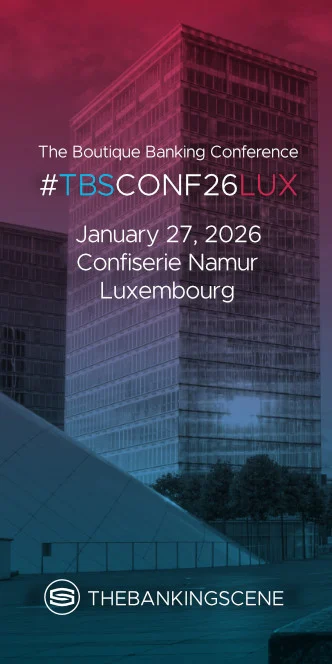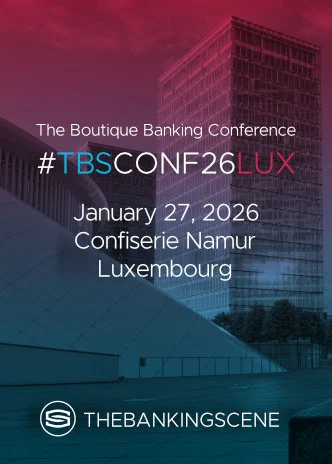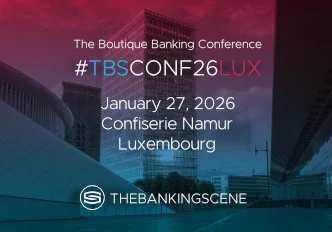
Insights & Opinions
What Missing the Football Season Kickoff Taught Me About Digital Banking
Mon, 11 Aug 2025


The last 2 weeks of July, I was on holiday in the chilly mountains in Zinal, Switzerland. Although the weather wasn’t perfect, nor was the sleep of our 3 children, I’ll remember that the biggest disappointment was something else.
Zinal is a stunning location in the Alps, the final ascent, the end of the road. Beyond Zinal, only gravel tracks remain, along with a valley and mountains of pure nature. If you're looking to unwind, this is the place to be.
I cannot say I was entirely offline, but it was definitely a healthy digital diet. I didn’t digest every possible online distraction, and after the Xth time Facebook asked me to agree to promotions, use my data for even more promotions, or pay €7,99 per month- an amount I find quite high, considering the average quarterly income per customer is €11,2, or €3,73 per month. But of course, that's not the point.
The point is that I got much less input, and that was extremely liberating, except for one thing…
We went to Zinal for hiking. The kids were having their own activities and my wife and I went for a guided trip in the mountains. And suddenly the messages came…
My friends in a WhatsApp group (I know, part of Meta, but no need to choose between payments, data usage and promos) started commenting on the latest game of KV Mechelen.
Indeed, the day before the Jupiler Pro League kicked off, the Belgian football competition and I completely forgot about it; I blame my bank for that.
My bank made me forget about the start of the new football season.
If you are a client of KBC Bank or closely follow the bank's developments, you know what I am talking about. Their app is among the most advanced in Belgium, if not the most. The features extend well beyond banking.
I don’t use most of the features, but I really like this one. It is also one that most CEOs at other banks wouldn’t hesitate to give as an example of never investing in because it’s too different from the traditional banking experience.
That feature is Goal Alert. Goal Alert allowed me to select KV Mechelen as my favourite football team and offered me, in real-time, the replays of the goals scored in a match from KV Mechelen.
Unfortunately, just like the main Belgian TV broadcasters, KBC was unable to renew the partnership with DAZN, which holds the exclusive rights to live stream the Jupiler Pro League and to offer match highlights.
What does this say about me?
I was informed that KBC was unable to keep Goal Alert alive for now. Yet the disappointment hit hardest after that first missed match.
You could argue I’m not a devoted enough supporter. Or that the holiday was so good I even forgot about football. Both may be true.
But it also suggests I need to reconsider my views on digital banking.
You may have read the article with a few comments from yours truly on the digital bank experience at Argenta, and I have always defended the idea that for some banks, pure banking services are sufficient to keep customers satisfied. I see myself as one of those, by the way.
After all, many consumers evaluate services by comparing what they pay to what they use, and if they don’t use most of what they get, they may feel that they paid too much for innovations that don’t add value.
However, the above experience challenged that view; I may expect more from my bank, or KBC Bank made me expect more from them.
I had a genuine expectation from my bank to be informed about the goals of my team, to see the replay and live the game as it happened, even if I wasn’t in the stadium or watching the game on TV (which I rarely do). With the expectation not being fulfilled, I emotionally blamed the bank, rather than the supplier who provided the replays to the bank, although DAZN was the real reason KBC Bank couldn’t offer me the service.
Rationally speaking, I knew I shouldn’t blame my bank, but we are emotional beings, aren’t we?
As a financial services trend watcher, I should praise KBC Bank for the frustration they caused me, as they proved to have built something beyond banking, that emotionally tied me to their brand.
What does this say about banking?
In my book, A New Ethos in Banking, I wrote about how digital technology should connect customers more closely with their bank, not less. I shared my wish that banks will embrace technology to foster better human connections, not just more efficient processes for managing banking services. In hindsight, Goals Alert was a great example of this.
A few times I spoke, wrote, and challenged bankers on stage, with a quote from a bank executive in the past, saying, “digital is a dissatisfier”.
When things go right, we don’t notice, but when they go wrong, we become frustrated. It was mentioned in the context of system failures but also as a symptom of what banking in a digital world has become.
What is important in this particular case, and a key lesson for every bank, is which party in this triangle (customer-bank-bank supplier) caused my frustration. Because in a world of open banking, embedded finance, and deeper integration of interconnected services, we will see this more and more.
As a bank, it is great to add more functionalities to help your customers and/or to delight them; after all, that’s all the influencers ask for; that’s all the fintech companies are proposing. It is how banks can build a more emotional relationship with the customers again, more cost-effectively than building it all themselves, if they can build it themselves.
As Koen Adolfs, Digital Lead Integration at ABN AMRO, once explained and I quoted in my book: “Embedded finance is not a stand-alone proposition. Propositions should work seamlessly together across their own channels, solutions and third-party integrations. This means many things must come together to offer a successful API product to the market.”
Let's add one extra element, which I now learned first-hand: it is essential to think about how you ensure continuity when customers depend on these services. How do you deal with these mental liabilities?
Because if, as a bank, you want to be there whenever the customer wants you to be there, you need to deal with these expectations beyond the technical possibilities.
Maybe the main conclusion of all this is that if this was the biggest concern of the trip, I must have had a great time off!
If you wonder what customer expectations in 2030 might look like in the payments industry, join us in Brussels on September 16 for The Banking Scene BBQ Night: Payments in 2030 for fiery debates and discussions accompanied by smoky BBQ delights.
The Banking Scene: Director's Cut
Andrew digs into the "story behind the story" with Rik as they discuss the implications of banks "going beyond banking" in the future - will this be the battleground for differentiation? Watch on YouTube below, or listen on your favourite podcast platform here.



